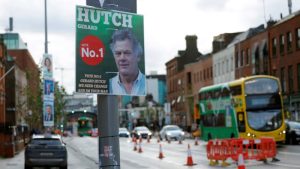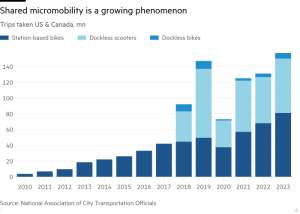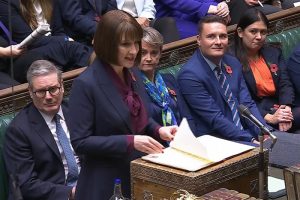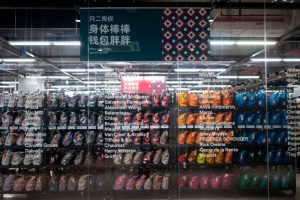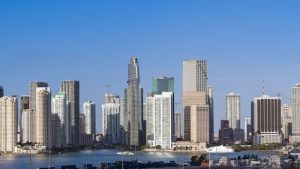Top Biden adviser warns of ‘chaos’ if Trump raises tariffs and guts IRA
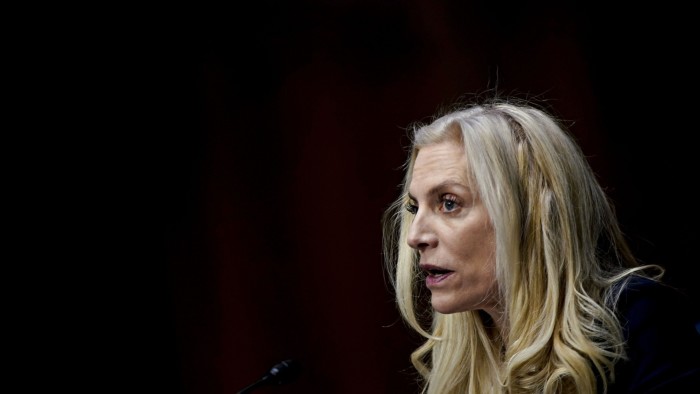
Unlock the White House Watch newsletter for free
Your guide to what the 2024 US election means for Washington and the world
Donald Trump will trigger a “period of chaos” and sharp price rises if he scraps Joe Biden’s manufacturing tax credits and increases tariffs as planned, the White House’s top economic adviser said.
Lael Brainard, director of the National Economic Council, told the Financial Times that Trump’s plan to gut the Inflation Reduction Act and the Chips and Science Act — President Biden’s signature legislation — would harm US manufacturing capacity.
“What would be very disruptive is if you saw sweeping across-the-board tariffs,” Brainard said in an interview. “We want to strengthen our manufacturers through [the] protection of the credits in the historic investment laws enacted by this administration and not throw us back into a period of chaos and price increases.”
Brainard, who was a vice-chair of the Federal Reserve before joining Biden’s White House, warned against Trump’s protectionist plans for across-the-board levies on imports.
The president-elect’s plan for universal tariffs — which he has said could be as high as 20 per cent — was “important to avoid”, she said.
“A lot of our leading manufacturers have some inputs that are imported, and so tariffs need to be very carefully designed to make sure that they are strengthening and not undermining American manufacturers and American jobs,” Brainard said.
Her warnings come as Trump picks his economic team ahead of his return to the Oval Office in January. Alongside tariffs he has vowed to carry out mass deportations of immigrants and unpick the IRA and the Chips Act, the central components of Biden’s industrial policy.
The two laws included more than $400bn in federal incentives designed to break China’s control of critical supply chains — and have made the US an attractive destinations for investment in clean technology and semiconductor manufacturing capacity.
The FT estimates that investors have committed nearly $400bn in large-scale manufacturing projects since the two laws were passed.
“Communities that have been left behind are now benefiting from new businesses and new jobs,” Brainard said in her interview. “There’s a real constituency there for continuing this manufacturing renaissance that’s under way.”
Trump has vowed to “terminate” the IRA, saying tariffs are a better alternative to protect American businesses and workers.
“That chip deal is so bad,” Trump said on the Joe Rogan podcast in October. “We put up billions of dollars for rich companies to come in . . . all you had to do was charge them tariffs.”
Economists and manufacturers have also expressed alarm at Trump’s tariff plan, saying the extra levies would raise prices and dent economic growth.
“As a manufacturer, it really complicates your life,” said Suvi Sharma, chief executive of Solarcycle, a solar panel recycler building a $406mn project in the state of Georgia with support from the IRA. “Tariffs and duties can have a really positive impact . . . if done more methodically than carte blanche.”
Biden kept in place $300bn of Trump’s 2018 tariffs against China and increased them on particular Chinese clean tech industries in May. Trump has promised to slap 60 per cent levies on goods from the country.
Economists say Trump’s plans paint a mixed economic outlook.
“One path sees tax cuts and deregulation unleashing animal spirits, thereby boosting productivity growth and GDP outcomes while keeping inflation well-contained,” said Michael Feroli, chief US economist at JPMorgan. “The other path foresees policy uncertainty hindering growth, while trade and immigration restrictions impart a stagflationary bias.”
The US stock market has risen to fresh highs following Trump’s election win this month, which also saw Republicans win control of Congress.
But many analysts think it will be difficult for him to demolish the IRA even with control of Congress. Republican districts have received more than 80 per cent of the manufacturing investments since the law was passed, the FT found, and some Republican legislators have argued against a full repeal as being the “worst-case scenario”.
“I think there is a risk, but I want to think logically,” said Gary Park, chief operating officer at Absolics, which received a preliminary $75mn award from the Chips Act for its factory in Georgia. “The semiconductor is [a] key industry for the future, and there is no reason for them to send the industry back to Korea.”
Some clean tech manufacturers are delaying projects until there is more clarity. The FT tracked that at least half a dozen projects have slowed down due to policy uncertainty.
“It’s too much unknown. It’s hard to move,” said Chao Yan, founder of battery components maker Princeton NuEnergy. “The increase of tariffs is going to increase inflation for everything we purchase from outside.”
#Top #Biden #adviser #warns #chaos #Trump #raises #tariffs #guts #IRA
